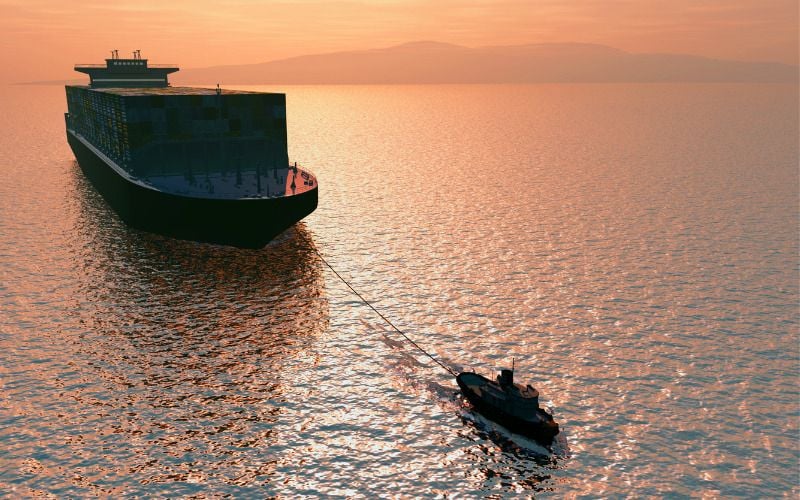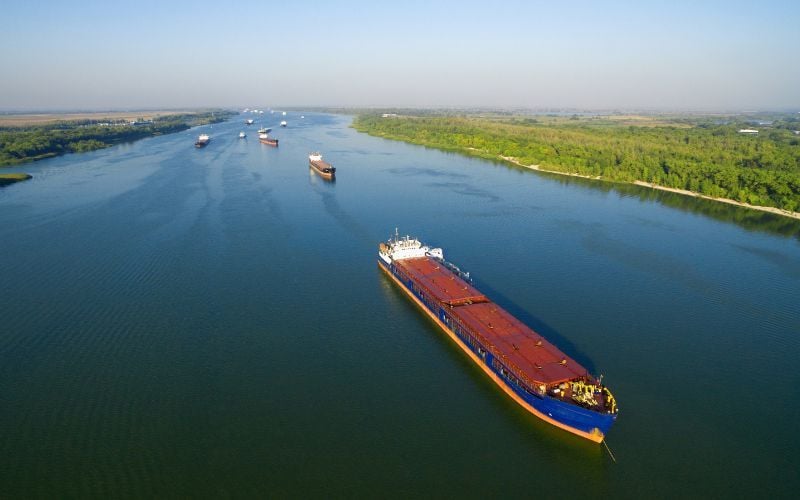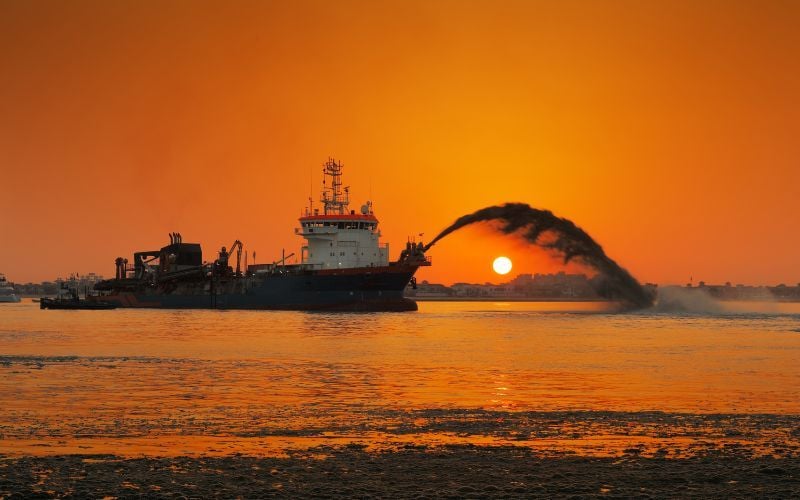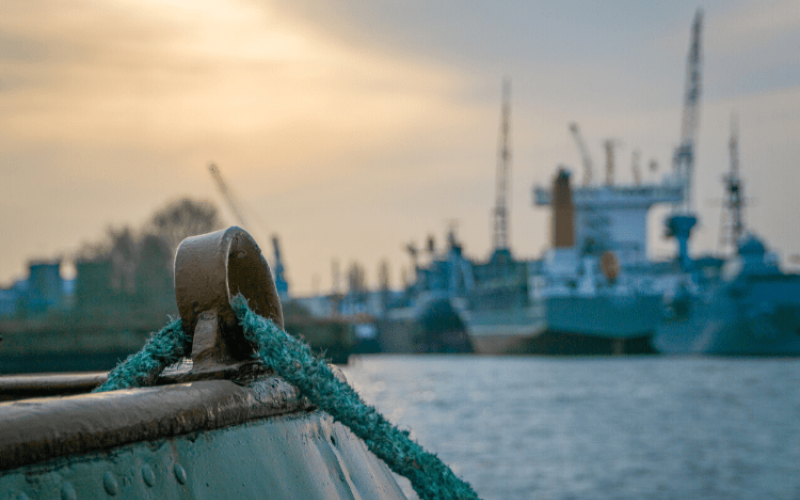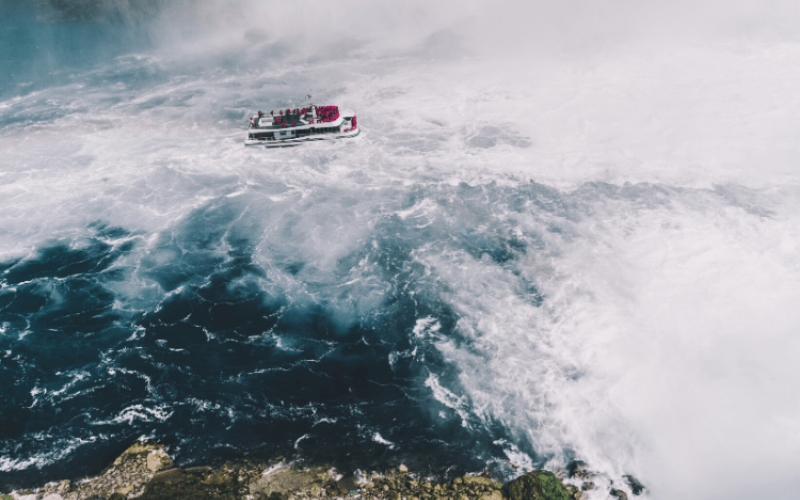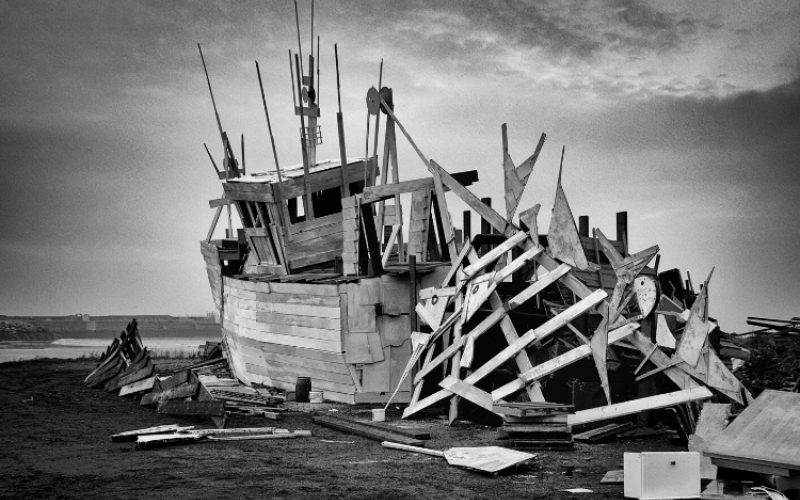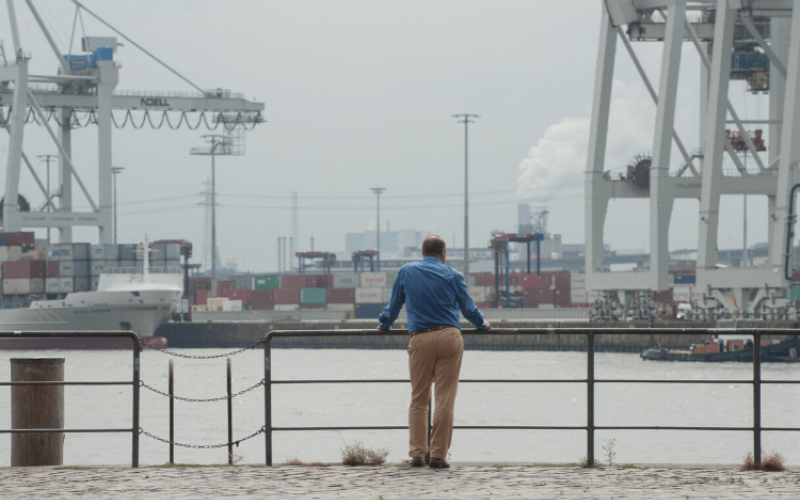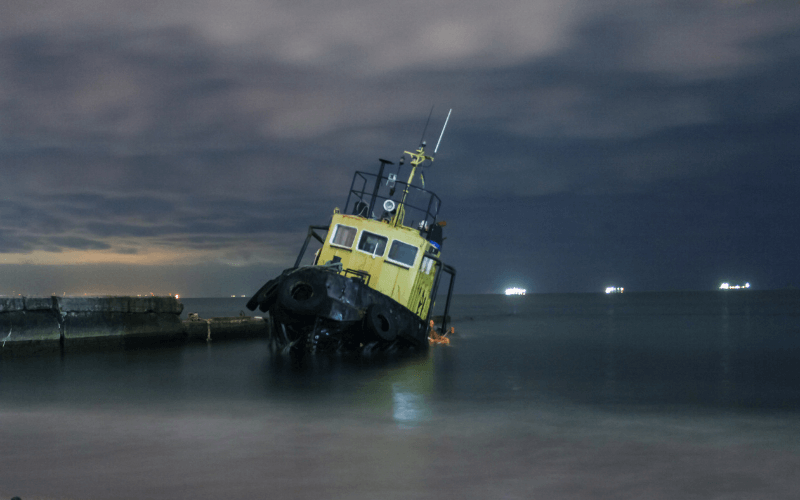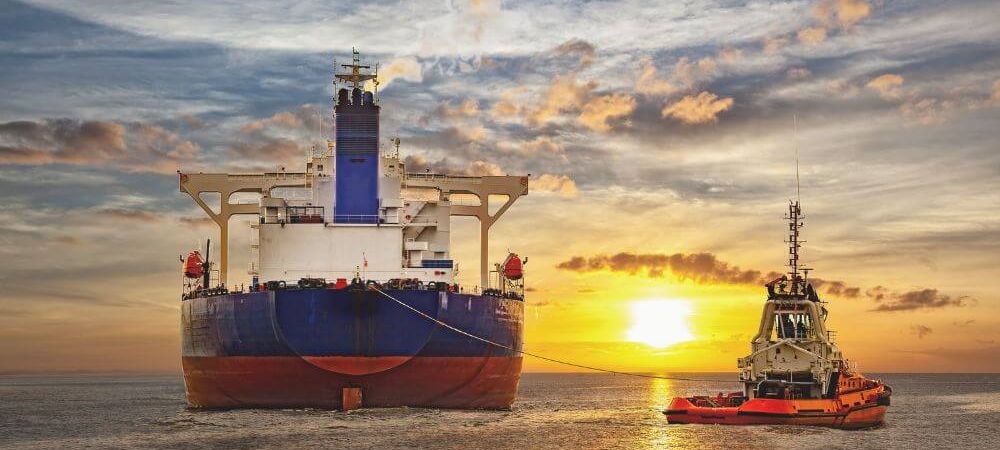
Tug Boat Accident Lawyers
Key Takeaways:
- Tugboat accidents occur for several reasons, including collisions, using shackles or heavy lines, slips and falls, gangway trips or falls, mechanical failures, and capsizing.
- The Doctrine of Seaworthiness offers a special type of workers’ compensation called maintenance and cure, covering medical bills, living expenses, and lost wages.
- The Jones Act is meant to protect injured tugboat workers and also allows for lawsuits against the employer when wrongful death occurs.
- A maritime law attorney can help injured workers understand their rights, meet strict filing deadlines, and file claims.
Tugboats are undoubtedly one of the most necessary ships at sea. They are specialized vessels designed to tow, direct, or assist other larger vessels. In Virginia, tugboat accidents are usually directly related to those activities.
Tugboats must be exceptionally powerful, partially because they are designed to help larger ships navigate congested or challenging waterways. All that power is packed in a relatively small frame that must exert force against other vessels to help steer them (without harming those other ships). In fact, the U.S. Army’s biggest tugboat can haul an entire aircraft carrier.
Working on a tugboat can also be quite hazardous. Tugboat accidents can occur for any number of reasons, some of which are preventable and some which are not. The Virginia maritime attorneys at Montagna Maritime Law have years of experience working with seamen injured in tugboat accidents in ports along the East Coast. Call us at 757-622-8056 today to schedule a free consultation and start your case.
Leading Factors Contributing to Tugboat Accidents

The best way to deal with Virginia tugboat accidents and related personal injury is to prevent them from happening in the first place. By understanding some of the leading factors contributing to these accidents, you can learn when to be cautious and what to avoid.
Tugboats Over 20 Years Old
Older tugboats start to pose serious risks once they reach the 20-year mark. In fact, 61 percent of the tugboat accidents between 2008 and 2017 involved boats over 20 years old. Aged equipment is much more prone to mechanical failures.
Transitioning Between Vessels
When transitioning between vessels, there is always a chance of an accident occurring, especially when people rush through the transition as fast as possible. Going slow and steady helps protect everyone involved.
Negligence
Neglect by the owner or captain of a tugboat can lead to injuries in several ways. First, many aspects of tugboat operation require constant safety monitoring, and neglecting this can lead to accidents. Negligence also applies to tugboats equipped with insufficient or inadequate safety equipment.
Additionally, improperly trained crew are more prone to mistakes and less likely to know what to do in emergencies, leading to injuries. Understaffing is another serious problem that goes beyond simply needing more people. Understaffing leads to worker fatigue and overworking, making the crew more prone to avoidable accidents.
Tugboat Accidents and the Doctrine of Unseaworthiness
According to maritime law, all maritime vessel operators and employers are responsible for the safety of the crew that works on the vessel. The Doctrine of Unseaworthiness states that boat owners and operators have strict liability for medical bills and other damages for worker accidents if the vessel is not seaworthy.It is essential to understand that seaworthiness is not simply a matter of whether or not the boat will float. Seaworthiness is defined as meeting all the relevant safety requirements and regulations for seafaring, including having access to safety equipment, safe working conditions, and adequate staffing and training for that staff.
Common Types of Tugboat Accidents in Virginia
A tugboat can be tasked with ferrying a variety of vessels, from large container ships to self-contained barges. The primary job of any tug is to help move these larger vessels from place to place, especially in areas where larger ships may not have the capacity to maneuver on their own effectively.
Due to the working conditions, tugboat accidents are relatively common.
Collisions
To a certain extent, tugboats are designed to collide with other ships. However, the close proximity in which tugboats operate to other vessels means that sometimes unplanned collisions can happen. That often leads to significant damage to the tug itself. A 2017 analysis of tugboat accidents found collision was the most common accident type for tugboats, and human error was the leading cause.
Accidents Involving Shackles or Heavy Lines
Tugboats are often secured manually to larger ships, which is accomplished using heavy lines or shackles. These lines can potentially create tugboat accidents if they are improperly secured or if workers get between those lines and where those lines intend to be. The sudden snapping of lines and shackles can also cause significant injuries.
Slips and Falls
The deck of a tugboat is often slick with water. This means that crew members can sometimes slip and fall. It’s an accident that sounds mundane but can cause significant injuries. This is especially true if a tugboat worker slips and falls overboard.
Gangway Accidents
Gangways, which essentially act as flexible catwalks joining sections of a ship (or one vessel to another), can potentially cause tugboat accidents. They are commonly used on a tugboat to reach another ship to secure the two vessels together. Tugboat accidents on gangways can leave seamen falling from great heights or overboard.
Mechanical Accidents
Tugboats usually contain heavy machinery. For example, the engines on a tugboat tend to be large and powerful. The failure or maintenance of any of that machinery can cause tugboat accidents ranging from mangled fingers to fires. The more powerful the machine, the more significant the accident might become.
Capsizing
Capsizing is a threat to tugboats that you don’t have to worry about in other scenarios like car accidents. A properly functioning tugboat being operated correctly can avoid capsizing, but some operational and mechanical problems cannot be overcome. Capsizing accidents often lead to fatalities.
Common Tugboat Accident Injuries

Tugboats are the sturdy workhorses of the maritime industry, but their small sizes can cause numerous accidents and injuries. There are real safety risks associated with working this job. From accidents involving fingers being cut off and other parts of your body crushed, the attorneys at Montagna Maritime Law have represented many seamen who’ve experienced big and small tugboat accidents in Virginia. Some of the most common tugboat injuries include:
- Crushing or compression injuries
- Traumatic brain injuries
- Hypothermia
- Neck, back, and spine injuries
- Broken bones
- Herniated discs
- Burns from chemicals or fire
- Sprains
- Severed fingers and limbs
- Drowning
- Wrongful death
Accidents on tugboats can often induce life-threatening injuries, so all crew members must be trained in safety procedures and policies. Tugboat accidents may occur more frequently or with greater severity when the crew is improperly trained.
If you have suffered from any of these injuries, call our Virginia tugboat accident attorneys for a free consultation today.
How the Jones Act Protects Injured Tugboat Workers
If you’ve been injured, you might qualify for maintenance and cure under the articles of the Jones Act.
The Jones Act, enforced by the U.S. Coast Guard, demands that all goods shipped between American ports be transported on American watercraft owned and operated by American citizens or permanent residents. Additionally, the majority of the crew on these ships must be American citizens. This is one of the cornerstones of general maritime law, which covers vessels ranging from personal watercraft to massive commercial boats.
The Jones Act additionally provides federal law coverage for the health and livelihood of workers on these vessels. If you or a loved one suffered an accident on a tugboat due to the owner’s negligence, you have the right to file a lawsuit. This is distinct from the Doctrine of Unseaworthiness, which offers a special kind of workers’ compensation called maintenance and cure.
Maintenance and cure compensation covers:
- General living expenses
- Lost wages
- Medical expenses
This financial compensation does not require you to prove negligence or who is at fault. It applies to injured workers until they are ready to return to work or it is determined that medical care will never help them get better. For help with Jones Act claims, schedule a free consultation with a skilled Virginia Jones Act lawyer at Montagna Maritime Law.
How to Recover Wrongful Death Damages Under the Jones Act
Maritime work is some of the most dangerous work people can do, and accidents can lead to wrongful death. If you have a loved one who suffered a wrongful death, the Jones Act allows you to sue their employer for negligence. Potential damages include:
- Financial support
- Funeral expenses
- Related medical expenses before death
- Conscious pain and suffering
Maritime personal injury lawyers can help you claim the compensation you deserve.
How Can a Virginia Tug Boat Accident Lawyer Help?
Knowing your rights in the wake of a tugboat accident can be challenging after suffering a serious injury. Tugboats often operate in ports or fresh-water conditions, but tugboat workers are still covered under maritime law. The Virginia attorneys at Montagna Maritime Law have the experience to know the most effective ways of pursuing damages for your tugboat injury claim.
An experienced Virginia tug boat accident attorney has much to offer and can handle much of the process for you. Maritime injury attorneys will investigate the accident to gather evidence on your behalf. They will also assess your expenses from the accident to determine the damages you deserve. An attorney will also communicate with all the parties involved on your behalf and can even represent you in negotiations and court if it comes to that. Like insurance companies, tugboat operators will likely fight back against your claim.
Why Our Clients Trust Montagna Maritime Law
When involved in an accident on the water, you need an attorney who understands the intricacies of maritime law and personal injury claims. Clients trust Montagna Maritime Law because we have over 50 years of offshore experience serving the Mid-Atlantic region and have successfully represented thousands of injured individuals just like you.
Recent Case Results
- Recent tugboat settlement amounts include:
- $350,000
- $425,000
- Recent offshore injury settlements include:
- $1.2 million
- $825,000
- $800,000
- $530,000
Testimonials
“Mr. Montagna is an amazing attorney. His legal expertise and dedication exceeded my expectations. Mr. Montagna provided clear and insightful guidance throughout the entire legal process. His professionalism and accessibility are unmatched in his field. He was very prompt if I had any questions and kept me informed at every stage. I would highly recommend Mr. Montagna to anyone in need of legal representation.” – Tyler
“Very professional law office. They handled our case with the respect it deserved. Would highly recommend them for cases in Hampton Roads.” – Kyler K.
Frequently Asked Questions about Tug Boat Accidents
How Are Maritime Cases Different Than Personal Injury Claims?
Maritime cases are different than personal injury claims because they are governed by a separate set of distinct laws.
Who Qualifies as a Jones Act Seaman?
To qualify as a Jones Act seaman, you must meet the following criteria:
- US citizen or a permanent resident alien
- Employed with a specific shipping company or ship
- Spend 30% or more of your time working with that specific ship or fleet
- Contribute directly to the functions of that ship or in accomplishing its assigned tasks
What Are the Main Safety Concerns When Operating a Tugboat?
The main safety concerns when operating a tugboat include:
- Slippery surfaces
- Winch wires that can cause entanglement
- Lines under tension
- Tripping hazards
- Weather conditions
- Falling objects
- Potential for falling overboard
Let Us Carry the Weight of Your Tugboat Accident
The experienced team of attorneys at Montagna Maritime Law has helped Virginia tugboat workers injured in tugboat accidents protect their rights and get the compensation they deserve. Maritime law can be especially confusing, so make sure you have an experienced team to fight for your legal rights on your behalf.
Our team has years of experience representing a variety of maritime workers, including tug crews and members of the International Longshoremen’s Association, the Masters, Mates & Pilots Union, the National Maritime Union, and other organizations in maritime accident cases across Chesapeake, Norfolk, Virginia Beach, and Portsmouth.
Our Hampton Roads law firm has the necessary experience to help with your Virginia tugboat accident case while letting you focus on recovery. Call us at 757-622-8056 or fill out our online contact form to get started with a free consultation.
"*" indicates required fields



